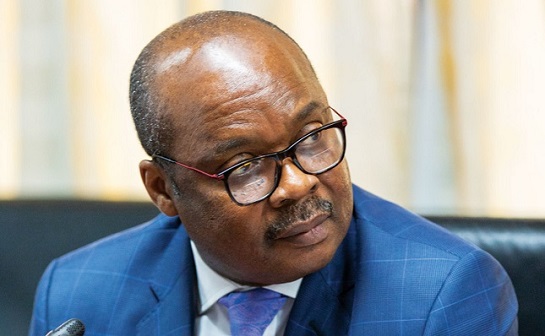The Institute of Economic Affairs (IEA) has initiated moves for a broad, comprehensive stakeholder review of the Bank of Ghana (BoG) Act with a goal of bolstering the Bank’s effectiveness and operational independence.
At the preliminary stakeholder forum in Accra convened by the Institute, several key areas for reform aiming to enhance the central bank’s ability to maintain price stability, ensure robust financial sector oversight and manage economic crises more effectively were highlighted.
“Deficiencies in the Bank’s operations and performance are, in many ways, traceable to loopholes in its Act. The IEA has undertaken an initial desk assessment of the Act and identified several loopholes that need to be addressed to promote, in particular, the Bank’s transparency, accountability and effectiveness. In its assessment, the IEA drew on best practices from the Bank of England and Federal Reserve Acts.
The Bank of Ghana Act’s assessment will form the basis for a review of the Act in consultation with a cross-section of stakeholders,” explained the IEA’s Director of Research, Dr. John Kwakye.
Central to proposed reforms is the call for a clearly-defined primary mandate for the BoG, with an emphasis on price stability.
The review underscored the importance of operational independence from political influences, suggesting measures to insulate the Bank from undue interference while simultaneously enhancing its accountability mechanisms.
The preliminary review recommended significant changes to the BoG’s governance structure. Key proposals include strengthening the board of directors’ role and ensuring transparency in their decision-making processes.
Clear criteria for the appointment and removal of board members and key executives are also suggested, to maintain integrity and accountability within the institution.
In response to evolving economic dynamics, the review proposed modernising the BoG’s monetary policy framework. This includes incorporating financial stability into the monetary policy mandate and developing new tools and instruments for effective policy implementation. These changes are expected to better equip the Bank to respond to economic changes and challenges.
The importance of a robust financial sector regulatory and supervisory framework was highlighted. Initial recommendations included strengthening the BoG’s role in financial sector oversight and improving coordination with other regulatory bodies. These measures are aimed at ensuring a stable and resilient financial system.
Futhermore, clear guidelines and protocols for managing financial crises are deemed crucial. The review suggested establishing a financial stability fund or similar mechanisms to address systemic risks. Enhancing the BoG’s capacity to act swiftly and effectively during financial crises is highlighted as a key area for reform.
To ensure the currency and payments system’s integrity and efficiency, the review proposes modernising payment systems and encouraging adoption of digital currencies. Improving the legal framework governing currency issuance and management is also recommended.
Comprehensive legal reforms are necessary to support the BoG’s mandate and operations, the IEA noted. It advocated for updating the BoG Act to reflect international best practices and enhancing the BoG’s institutional capacity through continuous training and development.
Effective communication and collaboration with stakeholders, including government, financial institutions and the public, was also highlighted as crucial for the BoG’s success.
The think tank recommended establishing regular communication channels to build trust and transparency, as well as improving the BoG’s public outreach and education initiatives.
These come as the central bank has come under intense scrutiny over its actions, especially in the last four years.
The BoG has encountered significant financial challenges due to its involvement in financing the budget deficit and participating in domestic debt restructuring.
In response to the COVID-19 pandemic, government issued a relief bond programme amounting to GH¢10billion which the BoG purchased to provide government with necessary liquidity to manage the economic fallout. However, this purchase significantly increased the BoG’s exposure to government debt, straining its balance sheet.
In 2022, the BoG granted an overdraft extension of approximately GH¢44.5billion to government. This extension aimed to address auction shortfalls and cover payments for customers with matured bonds, particularly when government’s resources were insufficient. The scale of this extension far exceeded the statutory limit of five percent of the previous year’s revenue, approximately GH¢3.5billion.
As a result, the BoG reported a GH¢60.8billion loss in 2022 – absorbing a 50 percent haircut on its non-marketable holdings of government debt instruments. Total liabilities of the central bank and its subsidiaries exceeded its total assets by GH¢54.52billion, rendering it technically insolvent.
Last month, the BoG announced a further loss of GH¢10.5billion for the financial year ending 2023. Analysts argue that these measures are the primary reason the inflation rate reached a historic 54.1 percent – a 22 year high – in December 2023, despite the benchmark monetary policy rate being increased to over 30 percent.
Following the conclusion of debt restructuring with external commercial creditors, the central bank announced that it has signed an agreement with the Ministry of Finance for its recapitalisation.





